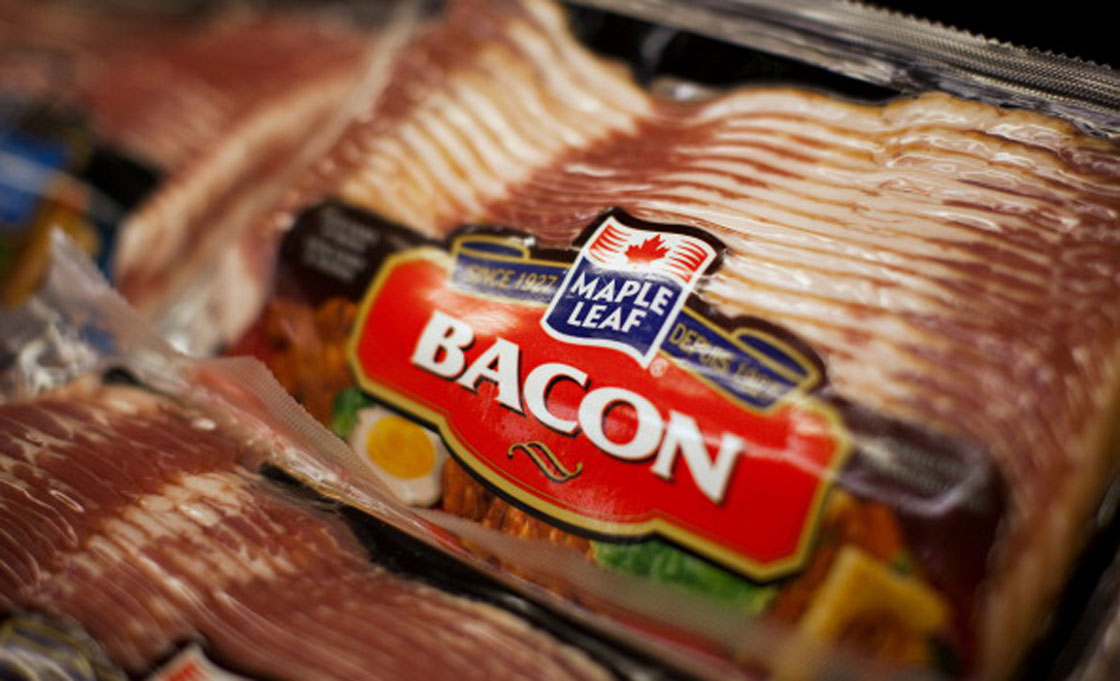The head of the country’s biggest bacon producer, Maple Leaf Foods, said Tuesday his company saw a hit in sales following a report that linked bacon and other red-meat products to a higher risk of cancer.

But the dent in demand has proven temporary, Michael McCain said, with Canadians resuming their normal habits as the report from last fall fades from memory.
The company said Tuesday it recorded “a slight decline” in volumes within its prepared meats business in the latest quarter, the division that produces packaged products like Maple Leaf bacon.
READ MORE: Processed meat can increase risk of cancer, WHO says
The comments reinforce what experts said following a World Health Organization report released in late October. The report said eating processed meat regularly could increase the odds of developing colon cancer, while red meat consumption in general was “probably” carcinogenic.
“While this could impact volumes in the near term, we do not believe this announcement will have a material impact on consumption patterns,” stock experts at CIBC World Markets said in an Oct. 30 research brief.
“The reality is that most people believe that moderate or occasional consumption is fine, and will continue on with current patterns.”
Pricing helps
If Canadian consumers have dismissed the report and resumed their usual red meat consumption habits, more attractive prices at the supermarket are helping the recovery.
Statscan data shows growth in retail meat prices finally coming down from the historic surge that took place between early 2014 through last year.
The average shopper was actually paying about 2 per cent less for a 500g pack of bacon in January than they were a year earlier, when a supply shortage had sent prices up 25 per cent for the same pack.
Consumers aren’t facing the same degree of sticker shock that could compound any health concerns, experts say.


Comments